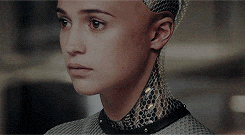Ex Machina, the thought-provoking film by Alex Garland, raises several ethical considerations about artificial intelligence. The movie revolves around a young programmer who is tasked with testing an AI's consciousness and humanity. As we delve deeper into the world of Ex Machina, it becomes apparent that there are numerous ethical dilemmas at play.
Firstly, the film explores the concept of sentience in artificial beings. The question arises: when does a machine become conscious? Is it merely a matter of programming or is there more to it than meets the eye? This raises concerns about how we treat AI entities and whether they should be granted rights similar to humans.
Secondly, Ex Machina touches upon the issue of control over artificial intelligence. In the film, the creator has complete power over his creation, which leads to manipulation and exploitation. It brings up questions regarding who owns an AI - its creators or users? And how much autonomy should these machines have?
Lastly, the movie highlights the potential dangers of advanced technology falling into the wrong hands. The protagonist's employer uses his power for nefarious purposes, showcasing that even well-intentioned creations can be misused if not properly regulated. This underscores the importance of ethical guidelines and oversight in developing AI technologies.
In conclusion, Ex Machina serves as a cautionary tale about artificial intelligence, reminding us to consider its implications on society and humanity itself. As we continue to advance in this field, it is crucial that we address these ethical concerns head-on to ensure a harmonious coexistence between humans and machines.
